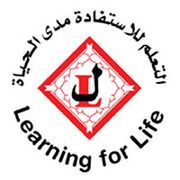Secondary Curriculum
Most students enter the secondary school from Latifa's primary section and a solid transition programme supports their move. The English National Curriculum, modified for context, is followed throughout the secondary school. Latifa School offers a broad range of optional subjects at GCSE; including ICT, music, business studies, French, Italian, Spanish, food technology, textiles technology, art, history, PE and geography. Examination results compare favourably with those achieved by other similar schools, with on average over 60% of students attaining 5 grades A* to C, including English and Maths, at GCSE level.
Music is offered to whole classes in KS3 and as an option in KS4. Individual instruction is also provided to interested students, who are encouraged to work towards ABRSM examinations.
In Year 12 students select from a range of AS level subjects and additional GCSE level subjects, based on their ability levels and future study plans. AS subjects on offer include biology, chemistry, maths, physics, English literature, business studies, art, food technology, textiles technology, French, Italian, Spanish, music, travel and tourism, ICT, geography, history and PE, depending on demand. A Key Skills course also runs as part of the Year 12 curriculum where students learn valuable practical and interpersonal life skills. Students intending to proceed to tertiary education in the United Kingdom, United States or elsewhere overseas have the option of continuing their AS studies up to A level in Year 13.
The School's careers programme begins in Year 9, when parents and students are actively engaged in discussions leading to the choice of GCSE options. In Year 10 students undertake a work experience week. In Year 11 interviews are held to discuss post-GCSE intentions, and a university fair helps guide those in Year 11 and 12 on their choice of university. As part of a careers fair, outside speakers, including former students, come in to discuss their own career choices and experiences. In Year 12 and Year 13, when appropriate, assistance is provided with the completion of university entrance forms and mock interviews are conducted. The careers programme benefits from a library of specialised literature, the use of software programmes and the internet.
Primary Curriculum
The majority of our students speak English as their second language. We believe that the rapid acquisition of English is of the greatest importance, so we place a heavy emphasis on teaching children correct English, beginning with their first days in the of foundation stage. Support for Learning staff work alongside staff and students to enhance learning.
In the primary school we teach the current English National Curriculum, including the new National Curriculum for Literacy, Numeracy and Science, which are adapted as needed to be of greater relevance to our students. Throughout the primary school, Arabic and Islamic Studies form an important part of our curriculum. Students have daily Arabic lessons, and Islamic Studies lessons twice a week.
Students are assessed on a regular basis to monitor progress towards meeting the standards required for entry into the secondary school.
In the foundation stage we base our curriculum on the New Early Years Foundation Stage curriculum activities and learning opportunities at this age are play-based, as we believe that it is through play that young children learn best. From FS2 students have specialist lessons in music, PE, Islamic Studies and ICT, alongside their classroom-based curriculum, which includes daily Arabic, literacy and numeracy lessons. Year 1 marks the introduction of more formal education.
From Year 3 in Numeracy, and Year 5 in Literacy, students are set into ability groups. From Year 1, Arabic is delivered in sets. This enables all students to develop and progress according to their individual needs. The curriculum is modified to suit the needs of the cohort. Science, art, history and geography are taught in class groups by the class teacher whilst specialist teachers provide music, PE, Islamic Studies and ICT within their department facilities.


 Nad Al Hammar
Nad Al Hammar
 Nad Al Hammar
Nad Al Hammar

